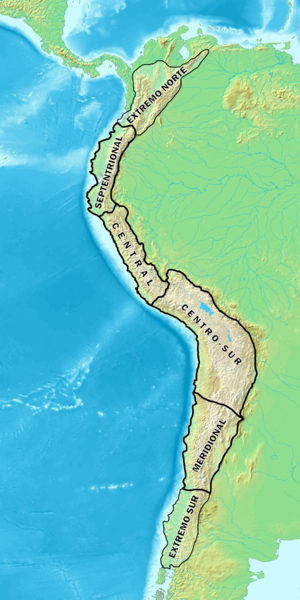 Even as the White House has censured Venezuelan officials for "narco-terrorist" ties, AP reported Dec. 15 that Venezuela handed a top Colombian drug trafficking suspect to US authorities. The US had offered a $5 million reward for information leading to the arrest of Maximiliano Bonilla Orozco AKA "Valenciano." InsightCrime informs us that "Valenciano" led the "Oficina de Envigado" criminal organization, seen as a successor to the Medellín Cartel. He was arrested last month in Maracay, west of Caracas.
Even as the White House has censured Venezuelan officials for "narco-terrorist" ties, AP reported Dec. 15 that Venezuela handed a top Colombian drug trafficking suspect to US authorities. The US had offered a $5 million reward for information leading to the arrest of Maximiliano Bonilla Orozco AKA "Valenciano." InsightCrime informs us that "Valenciano" led the "Oficina de Envigado" criminal organization, seen as a successor to the Medellín Cartel. He was arrested last month in Maracay, west of Caracas.
Mixed signals are also evident in Bolivia, likewise the target of US attempts to paint it as a narco state—and which still refuses cooperation with the DEA. AFP reported Dec. 13 that:
The skyline of Bolivia's Andean capital is being transformed by construction, reflecting general economic growth but also a less savory fact—an influx of cocaine money to one of South America's poorest nations.
The mountainous view from La Paz, nestled in a valley 3,600 meters (12,000 feet) above sea level, is gradually vanishing behind new apartment blocks, a trend seen in other cities such as Santa Cruz, Cochabamba, Sucre and Tarija.
Cement sales grew 12 percent in 2008 and 13 percent in 2009, according to industry figures, while construction has increased 10 percent per year on average, double the country's growth rate.
"It comes from exports, helped by the spectacular price of raw materials," as well as remittances from Bolivians living abroad and favorable credit, according to economist Alberto Bonadana, of the University of San Andres.
The "exports" include minerals and hydrocarbons, but also cocaine, of which Bolivia has emerged as the world's third largest producer, with the area under cultivation increasing by 31,000 hectares (77,000 acres) per year.
Contrast this report by Cuba's Prensa Latina Dec. 17
President Evo Morales presided over the closing ceremony on Saturday of anti-drug trafficking efforts made this year in Bolivia.
The country achieved successful results in the fight against the scourge, according to Deputy Minister of Social Defense and Controlled Substances, Felipe Caceres.
In Caceres´ opinion, unprecedented results were achieved this year in a joint effort by more than 3,000 agents of the Special Anti-Drug trafficking Task Force (FELCN).
All this was achieved without any subordination to the US Drug Enforcement Agency (DEA), which was expelled from the country in November 2008 by the government of President Evo Morales.
Caceres said that over 32 tons of cocaine were seized, drug labs were destroyed and Bolivian and foreign citizens involved with drug trafficking were detained.
He extolled the work carried out by members of the Joint Task Force (FTC), who eradicated 10,350 hectares of illegal coca crops through the year.
Meanwhile, the high level mission of the International Narcotics Control Board (INCB) extolled Bolivia´s achievements in the struggle against drug trafficking and the eradication of illegal coca crops.
The head of INCB, Hamid Ghodse,highlighted the efforts of the Bolivian government in this regard, as an indication of the good work being done in the country in the fight against drug trafficking.
In another move of grandiose populism, Venezuelan President Hugo Chávez has meanwhile unveiled a new coffin containing the remains of South American independence hero Simon Bolivar, BBC News reports. The mahogany coffin, encrusted with diamonds, pearls and golden stars, was revealed at a ceremony to mark the anniversary of Bolivar's death in 1830.
Graphic: Wikipedia







Recent comments
3 weeks 3 days ago
3 weeks 3 days ago
6 weeks 4 days ago
7 weeks 3 days ago
11 weeks 3 days ago
15 weeks 2 days ago
19 weeks 2 days ago
20 weeks 16 hours ago
30 weeks 16 hours ago
34 weeks 1 day ago